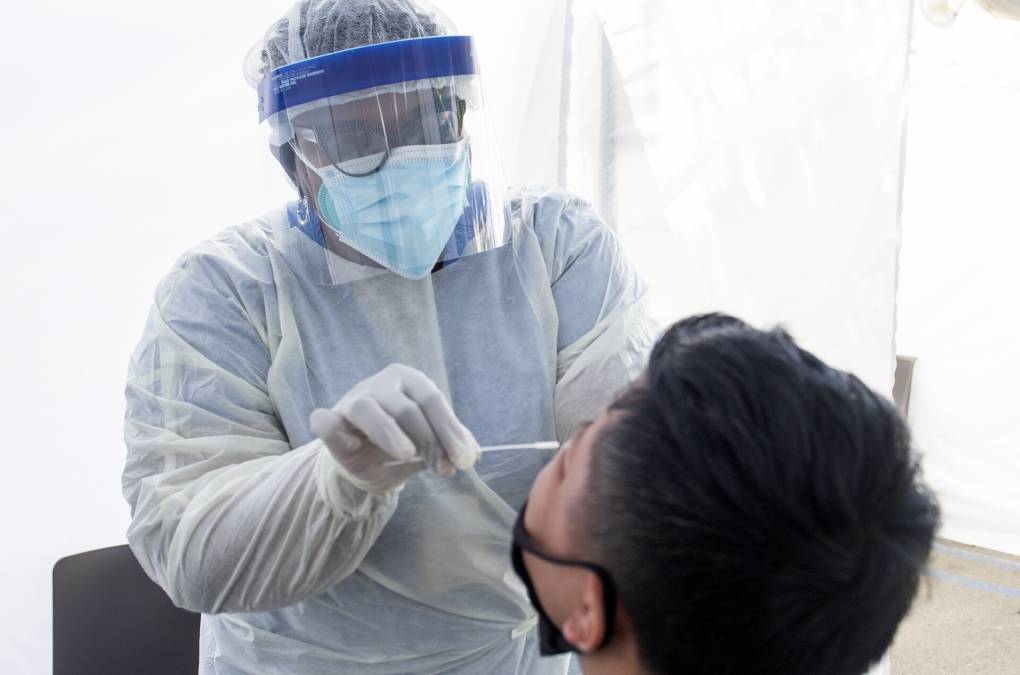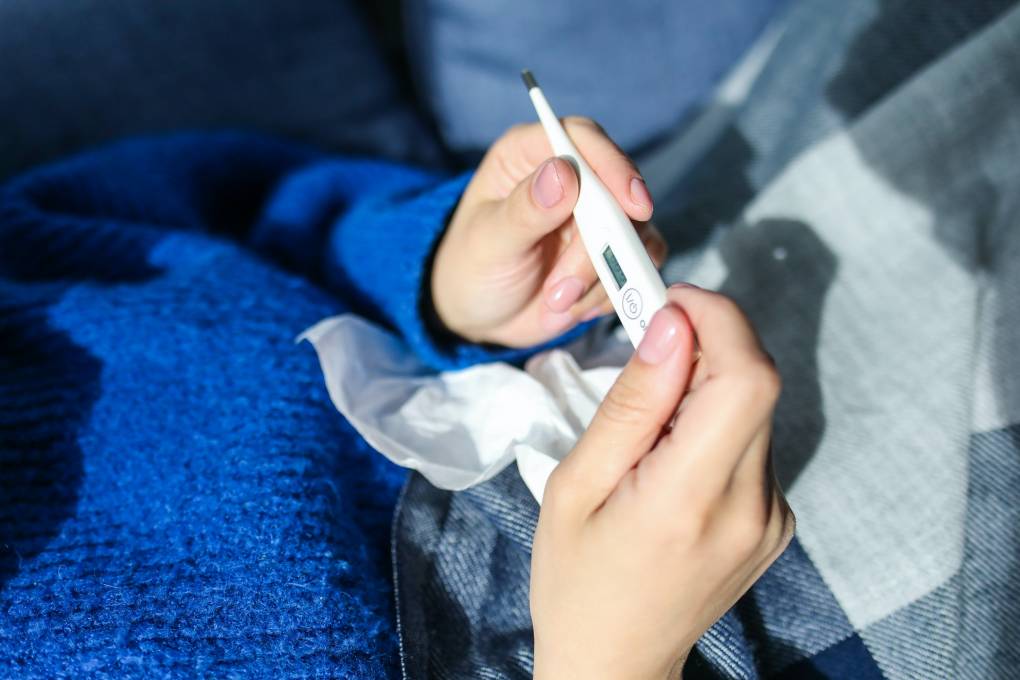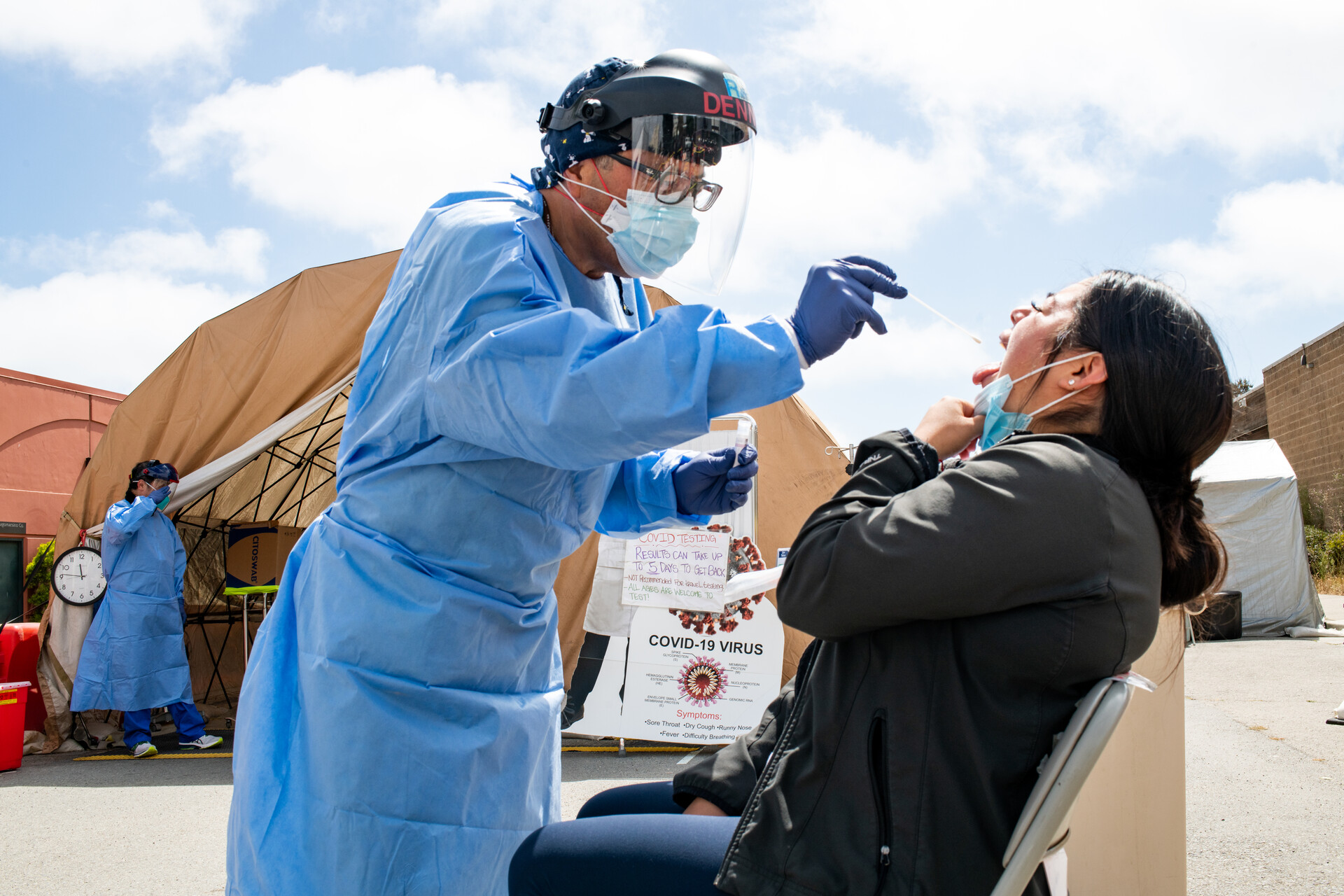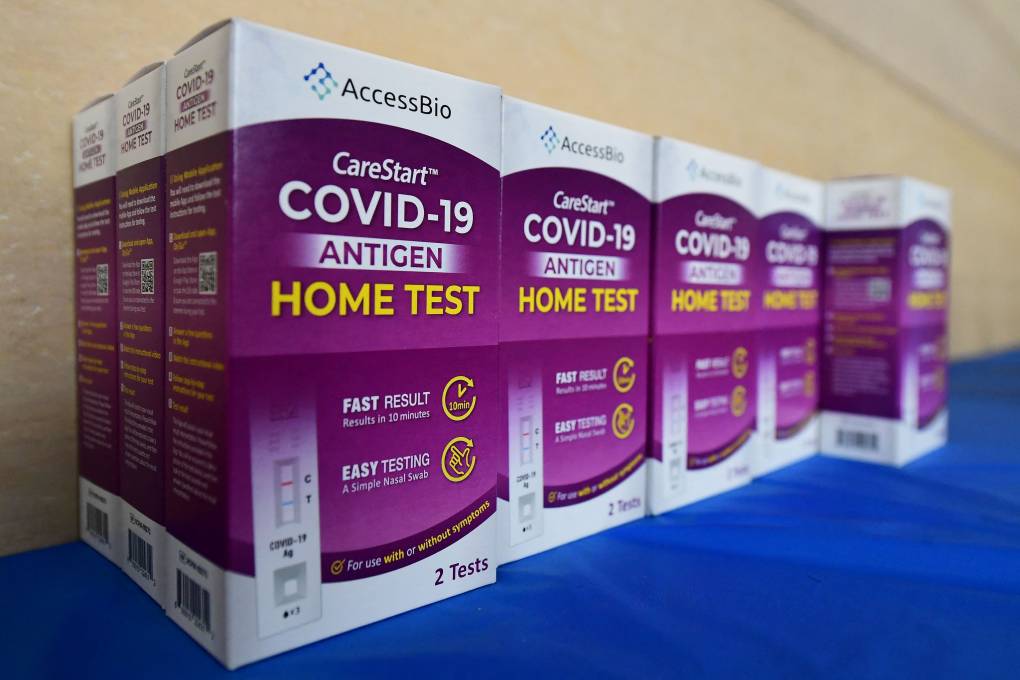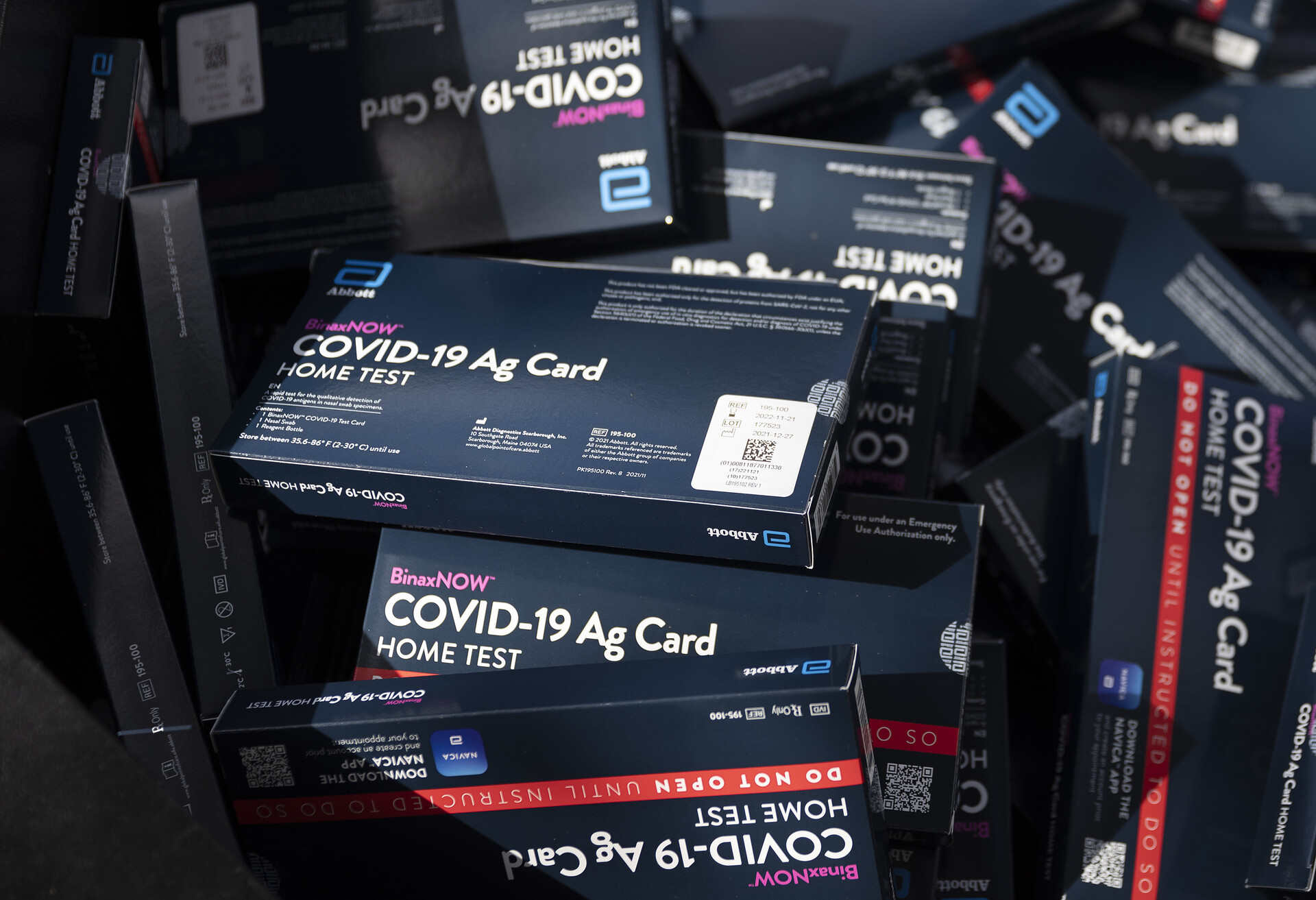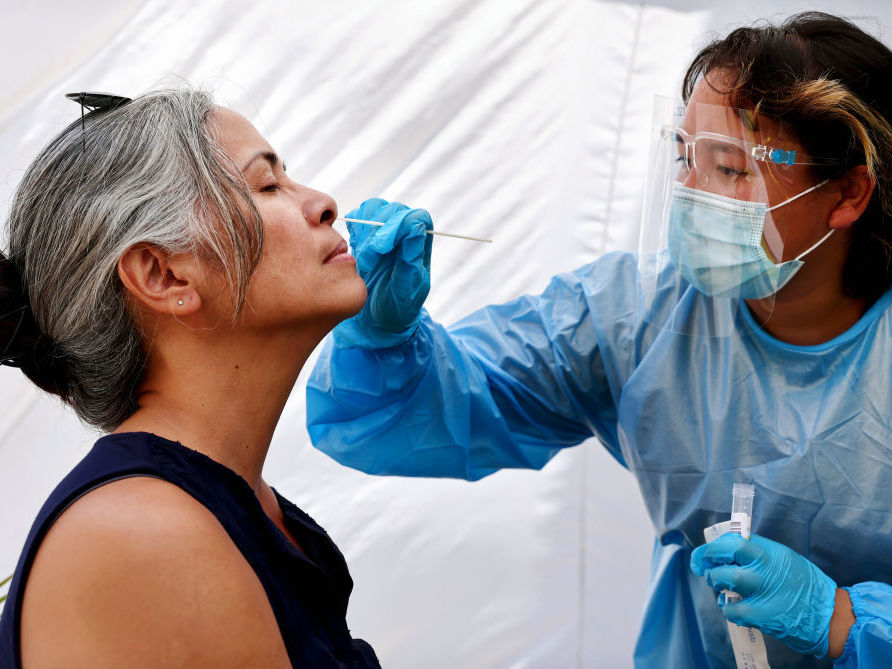Updated 8:45 p.m., Tuesday, May 24.
Skip to:
- Where can I find a COVID test near me?
- How soon after possible exposure should I get tested?
- How can I get free at-home COVID test kits?
Over 75% of Californians are now fully vaccinated, and over 58% have received their COVID booster shot.
But widespread breakthrough infections in fully vaccinated people and the recent rise in COVID case numbers around the Bay Area are a reminder that COVID testing remains crucial to ending this pandemic.
Health experts stress that getting tested for COVID, even when fully vaccinated, is an effective way to stop the spread of the coronavirus faster. But what if you’re struggling to find a timely COVID test in the Bay Area — especially when you need the results as soon as possible — or accessing a free appointment?
Keep reading for how to find a COVID test near you, and your options depending on your reason for getting tested.
One big thing to know: Finding a test if you’re uninsured became a little more complex a few months ago. In late March, the federal program that’s been funding COVID testing and care for people without health insurance ended — and in several cases, testing sites that previously offered free COVID tests to people without insurance stopped doing so. This means that if you’re uninsured, unfortunately it’s now extra important to check that the testing site you want to use still offers free tests for those without insurance.
The good news is that your local county testing site most likely will not be affected by that federal funding change, and still will be able to offer you a free test without insurance. Uninsured people have other free testing options, too: Look for the asterisks (*) in our list of COVID testing providers around the Bay Area to find them.
Where to find a COVID PCR test in the Bay Area
If you’re looking for COVID-19 testing in the Bay Area, you have several options — and for many testing sites, you still don’t need health insurance.
Unless otherwise noted, testing sites use nasal or oral swabs to determine whether you have the virus — not an antibody (serology) blood-based test to determine whether you’ve been exposed.
Most sites require appointments, and test results should be available within three days. If you need results sooner, be sure to select a rapid test.
Don’t have health insurance? Look out for the asterisks (*) below for the testing options most likely to be free for uninsured people.
Find a COVID test through your health care provider
If you have health insurance and get health care through a regular provider, such as Kaiser Permanente, you may find it easiest to get a COVID test through that provider.
Log into your provider’s website or app and look for COVID testing options to make an appointment.
You may find that certain providers offer testing to nonmembers. For example, Sutter Health’s California Pacific Medical Center says it can schedule tests for nonmembers as long as they have an order for the test from their physician.
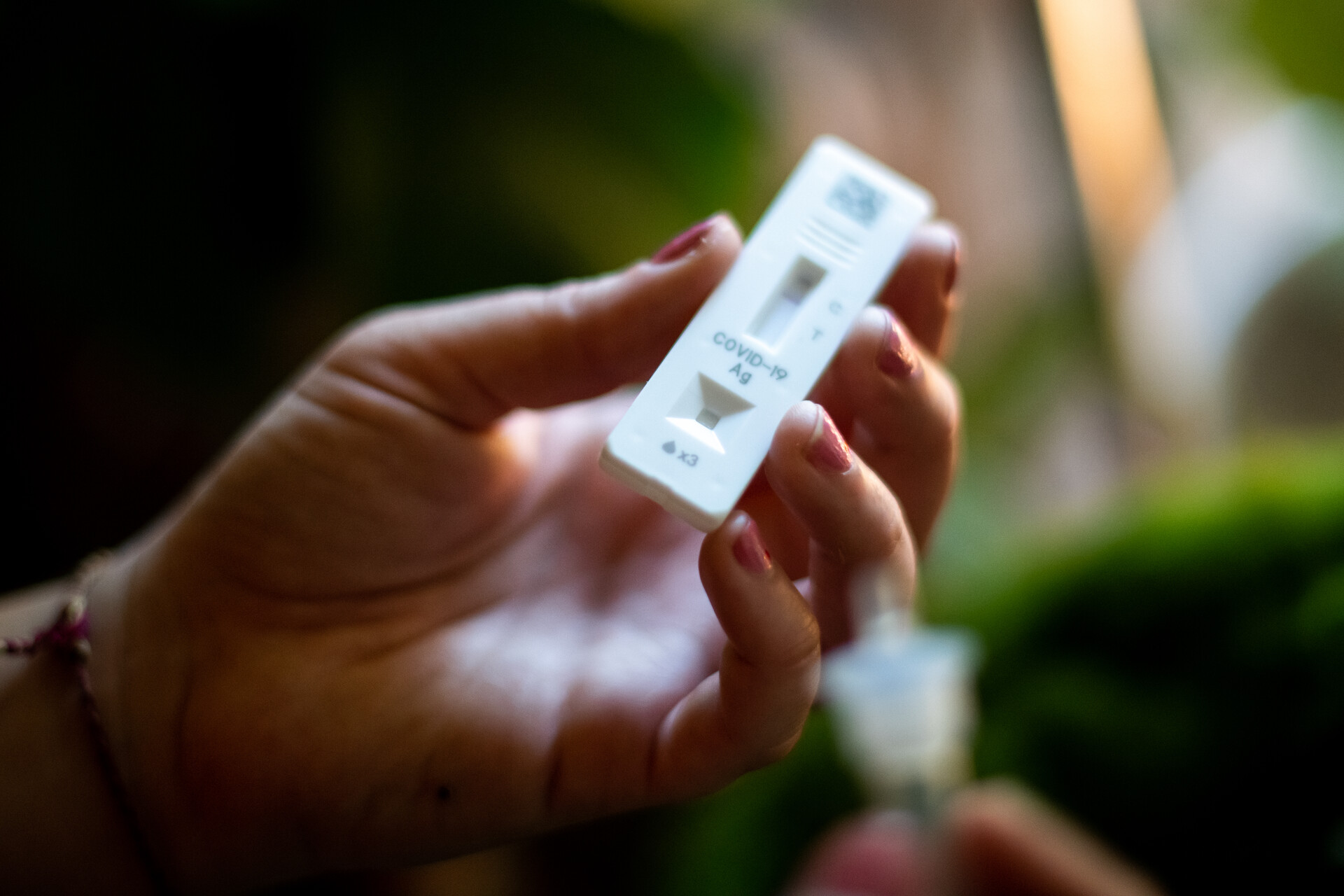
Find a COVID test through the state’s map*
For a complete list of COVID testing providers throughout California, use the state’s map that says it shows all public and private COVID testing providers.
The state says that free testing is “available at select clinics” using this tool, and recommends you look for the word “free” next to the clinic’s name.
Find a COVID test through Test to Treat*
As the name “Test to Treat” implies, these locations allow you to get tested for COVID and potentially treated for it by being prescribed COVID antivirals on-site. See a list of Test to Treat sites near you on the State of California’s map tool.
When you input your city or ZIP code in the Test to Treat locator map, look under “Locations with testing, medical visits, and medication (Test-to-Treat)” to find a testing location, not “Locations to fill a prescription.”
The state says that services at Optum Serve Test to Treat sites are free to uninsured people. (This refers to those Test to Treat sites run by Optum Serve, which is the federal health services business of Optum and UnitedHealth Group.) If you’re uninsured and you visit a Test to Treat location that isn’t run by Optum Serve, you could potentially find yourself asked to pay costs out of pocket.
If you’re uninsured and using the Test to Treat locator map to find a site, make sure you look specifically for the locations that say “Optum Serve.” You can also find only Optum Serve testing locations using the Optum Serve map online.
Find a COVID test through a pharmacy*
Spokespeople for CVS and Walgreens have confirmed that as of May 2022, COVID testing at their stores is still free for people without insurance.
Still, be extra-sure to check the billing details when making an appointment for a COVID test, especially if you’re uninsured.
Walgreens has also announced a new program that offers free PCR test kits for pickup in-store or curbside, no insurance required. These test kits are for your use at home, where you’ll swab yourself following the kit instructions and then mail the sample to a lab using the prepaid shipping box. Walgreens says results will be emailed to you 1–2 days after your sample is received at the lab.
Check whether a Walgreens store near you has supplies of these free PCR test kits. (We recommend trying different ZIP codes, for a higher chance of finding a store with availability.)
Find a COVID test through your Bay Area county*
The Bay Area county where you live, work or study will offer you a COVID test through their public health department. If you are uninsured, most county testing sites can still offer you a test.
Use the links below to find community testing sites in your area.
- Alameda County COVID tests
- City of Berkeley COVID tests
- Contra Costa County COVID tests
- Marin County COVID tests
- Napa County COVID tests
- San Francisco County COVID tests
- San Mateo County COVID tests
- Santa Clara County COVID tests
- Solano County COVID tests
- Sonoma County COVID tests
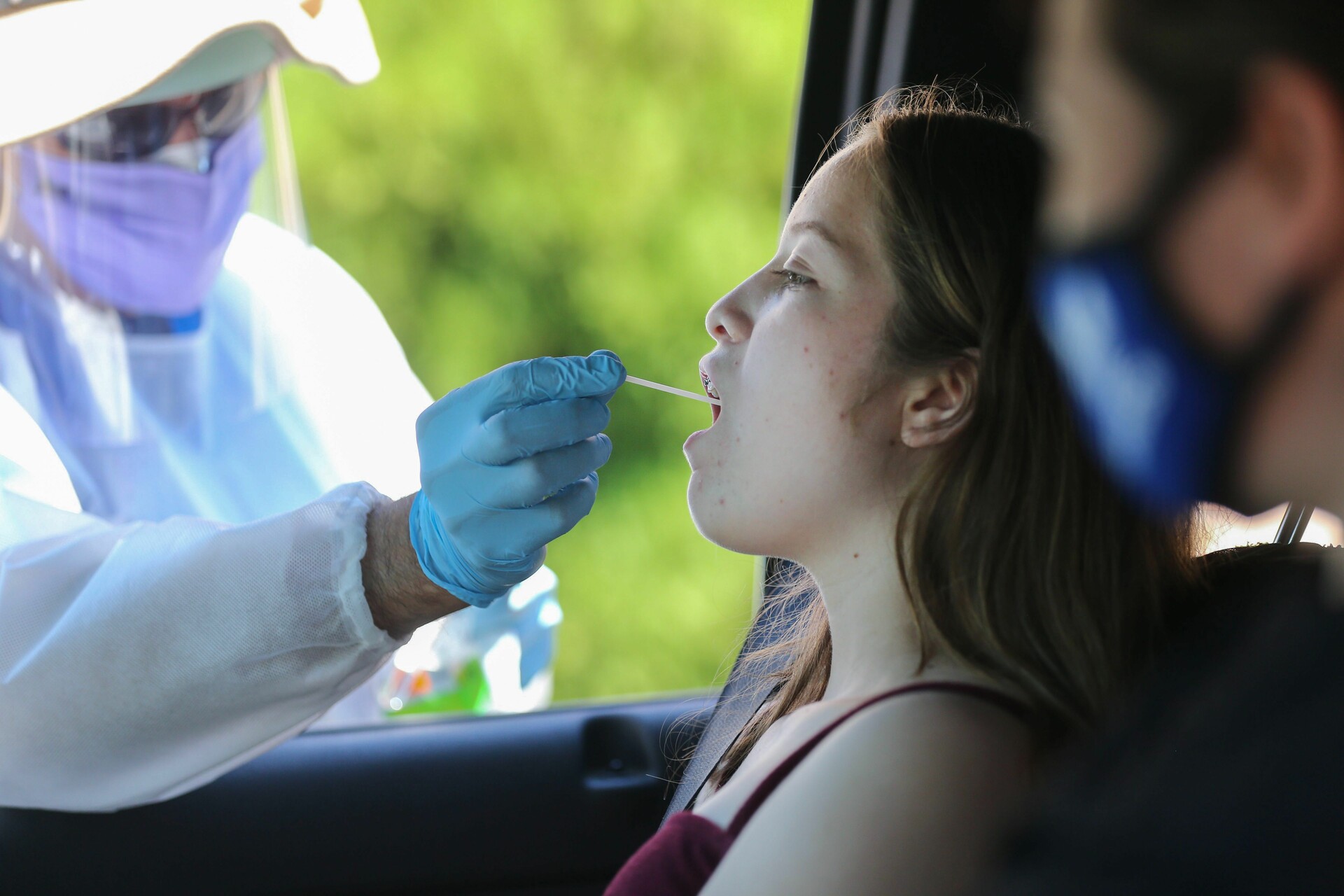
Find a COVID test through your school district*
If your child attends a public school in the Bay Area, or if you’re a school district employee, you may find that COVID testing is offered through that school district. For example, Oakland Unified School District offers COVID testing for all its staff, including employees, contractors and volunteers. Students and OUSD family members also are eligible.
Find a COVID test through one of these providers
If you are uninsured, you might find that the testing site down the street from you has stopped offering free tests to people without health coverage. That’s because private providers can no longer claim the costs of testing uninsured folks for COVID from the federal government. But different testing providers are handling this in different ways.
Some sites may continue offering free COVID tests to those without insurance, whereas others may now ask you to pay an out-of-pocket fee to get a test if you don’t have health insurance. Some testing sites may have made changes to their eligibility criteria for uninsured people. (Read more about how different sites have handled the changes.)
In short: Always check the billing details when making an appointment, especially if you’re uninsured. And if you do have health coverage, make sure to ask the test provider how they will bill the cost of the test to your insurance company. Insurance companies are required to cover the full cost of COVID-19 tests done at testing sites.
- Sites in Oakland and San Francisco
- Sites in South San Francisco (for SFO Airport), San Mateo, Palo Alto, San José, Oakland (Fruitvale), Hayward, Pleasanton and Pleasant Hill
Fulgent Genetics COVID testing
- Sites in Oakland and Hayward
- Multiple sites in San Francisco, plus Oakland, Berkeley, San Leandro, San José and San Mateo
- Sites in Oakland, San Francisco and Fairfield
- Multiple sites around the Bay Area
- Sites in San Francisco, San Mateo, Redwood City, Woodside, Portola Valley and Foster City
- Sites around the Bay Area
- Sites in San Francisco, Oakland, Livermore, Dublin, El Cerrito and San José
Stanford Health Care COVID testing
- Sites in Redwood City, San José, Palo Alto, Emeryville and Livermore (open to the public as well as Stanford Health patients)
- Site in Santa Clara
These results may be duplicated on your county’s public health website (see above).
Using a COVID self-test at home
The CDC advises that while a negative result from a home COVID test “indicates that you may not be infected,” it “does not rule out an infection.” It’s therefore recommended that you repeat the test for certainty, especially if you’re getting tested to be able to attend an event.
Doing two or more tests over several days with at least 24 hours between tests — with one test as close as possible to the event you’re hoping to attend — “improves the reliability of testing and reduces your risk of transmitting disease to others even further,” says the CDC.
